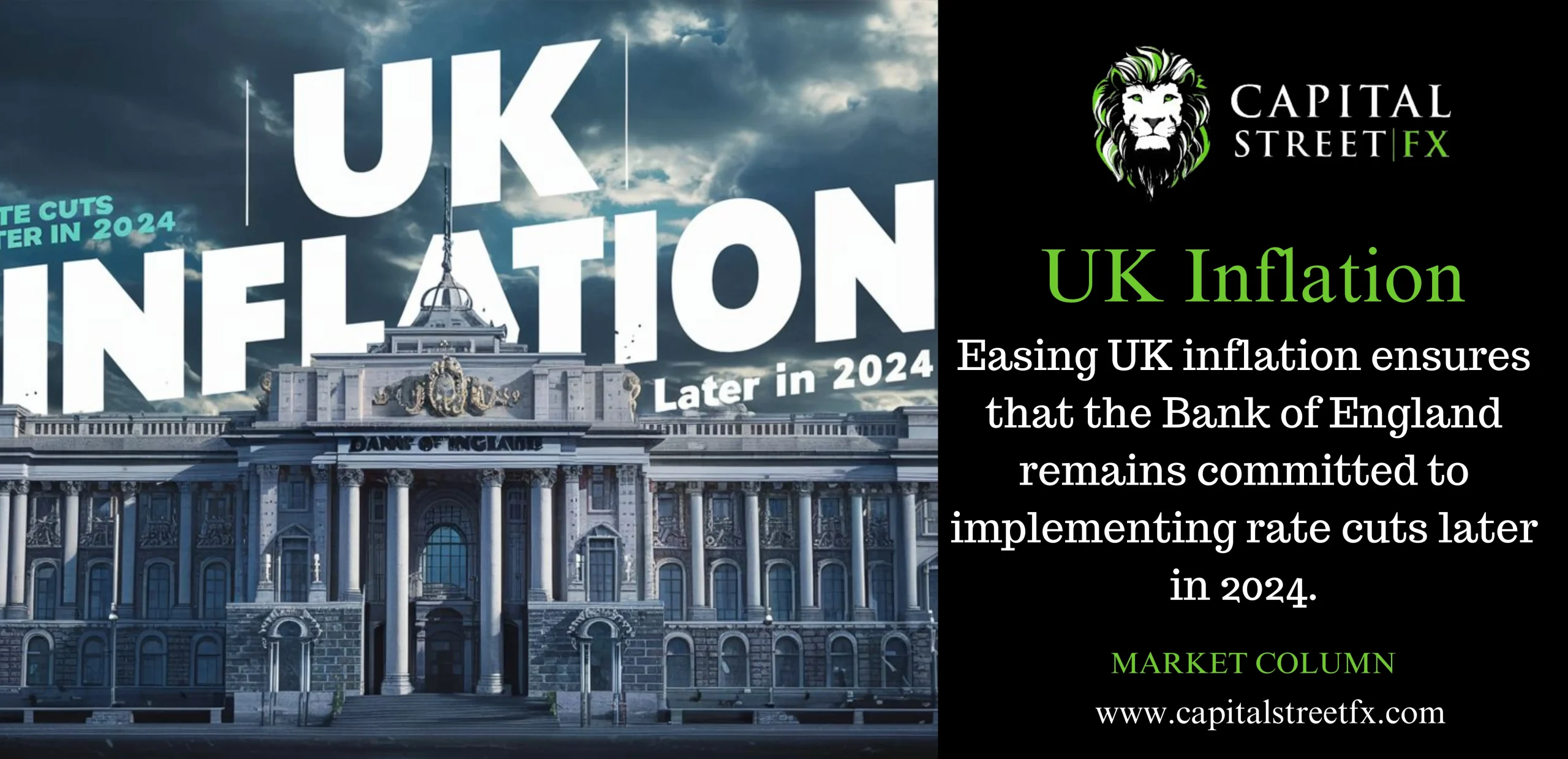Easing UK inflation ensures that the Bank of England remains committed to implementing rate cuts later in 2024.
In February, the pace of inflation in Britain decelerated, aligning with the Bank of England’s plan to initiate interest rate cuts in the coming months. This provides some positive economic developments for Prime Minister Rishi Sunak ahead of an anticipated election later this year.
According to official data released on Wednesday, consumer prices increased by 3.4% on an annual basis, following a 4.0% rise in January. This marks the slowest inflation rate since September 2021.
The core inflation rate, which excludes energy, food, and tobacco prices, also decreased, falling from 5.1% in January to 4.5%. This figure was slightly below the 4.6% forecasted by the Reuters poll.
The Monetary Policy Committee (MPC) of the Bank of England (BoE) is expected to maintain interest rates unchanged on Thursday, mirroring the U.S. Federal Reserve’s decision, which will be announced later on Wednesday.
Investors marginally raised expectations of the Bank of England initiating interest rate cuts in August, while the value of the pound remained relatively stable.
The inflation rate for services, closely monitored by the Bank of England, decreased from 6.5% in January to 6.1%, aligning with the central bank’s expectations.
Even with the easing of price pressures, Britain maintains the highest headline inflation rate among the advanced economies of the Group of Seven.
Since the conclusion of 2020, British consumer prices have risen by over 21%, marking a record surpassed solely by Austria in Western Europe, as per comparable Eurostat data.
The Bank of England has indicated that despite underlying inflation pressures persisting, it is not inclined to reduce interest rates at present. However, it has suggested that lower borrowing costs are probable later in the year.

